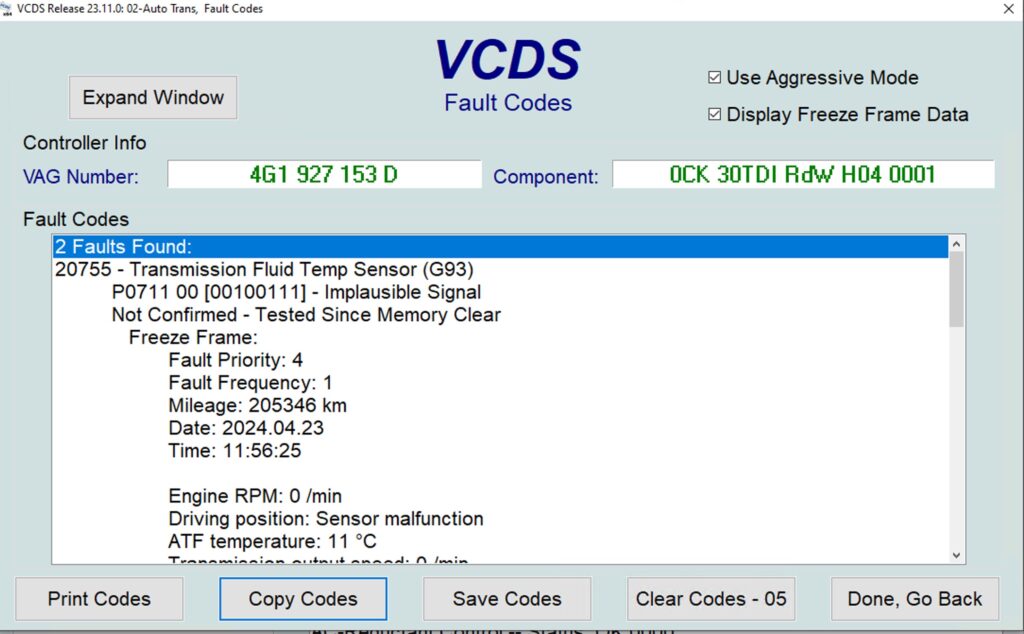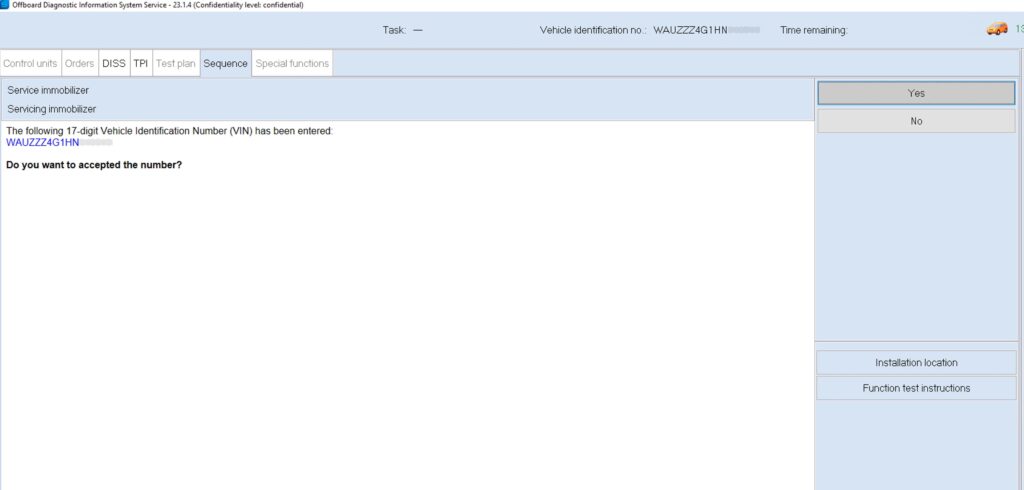Performing procedures correctly, using the appropriate tools, is increasingly crucial. Take, for instance, the 0CK and 0CJ transmissions in the VAG group. We’ve encountered numerous challenges following customers’ attempts to clone TCM software using various tuning tools. In such instances, discrepancies in hardware led to the emergence of fault code “P0711 Transmission fluid temp sensor (G93).

Upon reading the module information, we discovered that the VIN was already programmed into the module. When we inquired with the customer about how the new module already had a VIN number, they informed us that they had cloned the software from the old transmission module into the new one. The table below illustrates the consequences of cloning the software.
| Cloned software | Original empty module | |
| Vin | WAUZZZ4G1HN****** | —————– |
| Serie number | 0000000934 | 0000000355 |
| ASAM | EV_TCMDL382021 | EV_TCMDL382021 |
| ASAM version | 002020 | 002028 |
| Software version | 4G1927153D | 4G1927153H |
| Software number | 0001 | 0001 |
| Hardware | 0CK927156AA | 0CJ927156A |
| Hardware version | H04 | H01 |
| VAG system name | J217 | J217 |
Under normal circumstances, altering the hardware number should be entirely impossible. However, as evidenced, the hardware has transitioned from a brand new “0CJ927156A” to the original “0CK927156AA.” Notably, the 0CK hardware version features a distinct fluid temperature sensor compared to the 0CJ hardware versions.

After the customer reloaded the original software into the module, we successfully removed the component protection using ODIS. Subsequently, we performed the necessary basic settings, and now the customer is back on the road.
Therefore, it’s essential to exercise caution when using tuning tools and cloning modules, as they can overwrite more data than necessary. If you encounter any of these issues, rest assured, we’re here to provide support!

